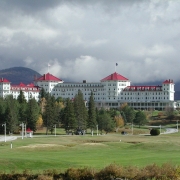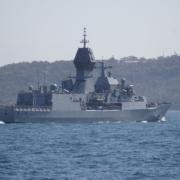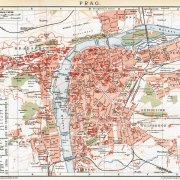Why did the USA get involved in the Korean War?
Topic of Study [For H2 and H1 History Students]:
Paper 1: Understanding the Cold War (1945-1991)
Section A: Source-based Case Study
Theme I Chapter 2: A World Divided by the Cold War – Manifestations of the global Cold War: The Korean War (1950)
Historical context: A Divided Korea
After the Japanese surrendered in 2 September 1945, the superpowers (USA and the USSR) agreed to divided the Korean peninsula at the 38th parallel. From 1945 to 1948, the superpowers oversaw the development of the two Koreas.
In 1948, the USA put forth the idea of a vote for all Koreans to decide their futures. After the North refused, the Democratic People’s Republic of Korea (DPRK) was formed, helmed by Kim II-Sung. In contrast, the South formed the Republic of Korea (ROK) under the leadership of President Syngman Rhee.
Having blamed the United States for killing Korean reunification and setting up its own satellite state in southern Korea, the USSR then proceeded to approve the establishment of a separate North Korean state only after the South Korean state had been founded on August 15, 1948. Accordingly, elections were held in northern Korea on August 25, and the Democratic People’s Republic of Korea (DPRK) was proclaimed on September 9, with its capital in Pyongyang.
An excerpt from “The Partition of Korea After World War II: A Global History” by Jongsoo James Lee.
Preparation for War
In 1949 and 1950, Kim visited Stalin in Moscow, seeking the Soviet leader’s support to launch an invasion in Korea. With the help of the Soviets and the Chinese, the North Korean troops crossed the 38th parallel and invaded South Korea on 25 June 1950.
Before the Truman administration took the initiative to lead the United Nations Command (UNC) and repel the invasion, the American President received a document named the National Security Council Paper Number 68 (NSC-68). The document advised Truman to build up the defense industry to counter the danger of global communism.
According to the authors, the Soviet Union was an inherently expansionistic and militaristic power “animated by a new fanatic faith” – communism – that “seeks to impose its absolute authority over the rest of the world.
[…] “With the development of increasingly terrifying weapons of mass destruction,” the authors of NSC 68 wrote, “every individual faces the ever-present possibility of annihilation should the conflict enter the phase of total war.” “The issues that face us are momentous,” the authors admonished, “involving the fulfillment or destruction not only of this Republic but of civilization itself.”
An excerpt from “NSC 68 and the Political Economy of the Early Cold War” by Curt Cardwell.
On 27 June 1950, Truman gave a speech, ordering the deployment of American forces to South Korea to counter the North Korea’s attacks. Interestingly, the US intervention was not treated as formal declaration of war against North Korea, but rather a ‘police action’.
American historians have consistently revised their views on the Korean War: called a “police action” in the 1950s, it became the “limited war” in the 1960s, a civil war or “forgotten war” or “unknown war” in the 1970s and ’80s, and in the 1990s new archives in Moscow were used to argue that it was exactly the war Truman said it was at the time: Kremlin aggression, which he rightly resisted.
An excerpt from “The Korean War: A History” by Bruce Cumings.
What can we learn from this article?
Consider the following question:
– To what extent do you agree that the Korean War was a civil conflict?
Join our JC History Tuition to learn more about the Korean War. The H2 and H1 History Tuition feature online discussion and writing practices to enhance your knowledge application skills. Get useful study notes and clarify your doubts on the subject with the tutor. You can also follow our Telegram Channel to get useful updates.
We have other JC tuition classes, such as JC Math Tuition and JC Chemistry Tuition. For Secondary Tuition, we provide Secondary English Tuition, Secondary Math tuition, Secondary Chemistry Tuition, Social Studies Tuition, Geography, History Tuition and Secondary Economics Tuition. For Primary Tuition, we have Primary English, Math and Science Tuition. Call 9658 5789 to find out more.











